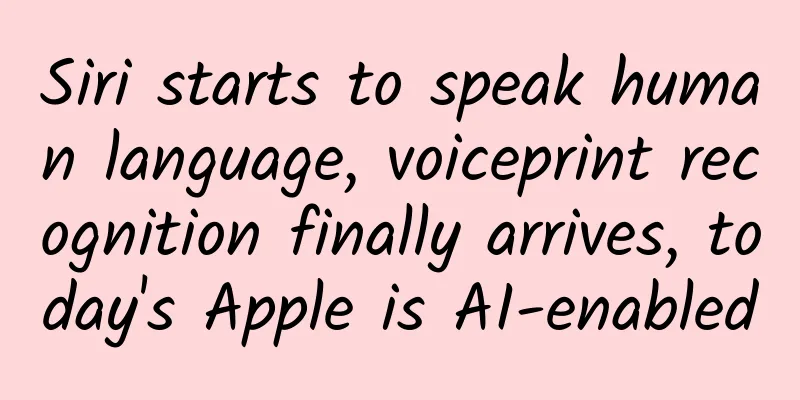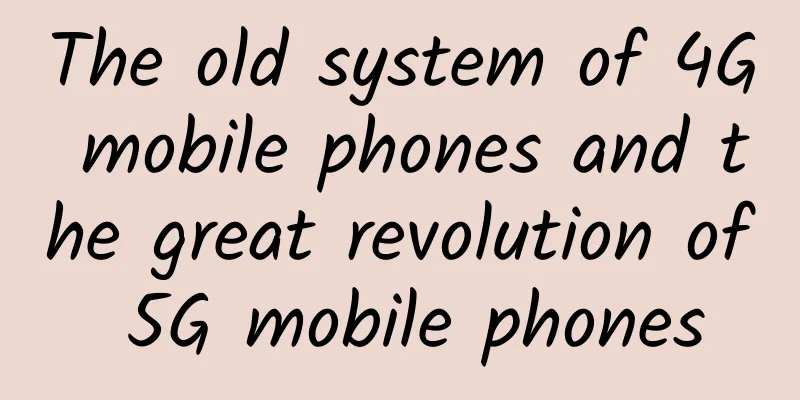Siri starts to speak human language, voiceprint recognition finally arrives, today's Apple is AI-enabled

|
Early this morning, the annual Apple WWDC 19 Global Developers Conference was held in San Jose, USA. Apple updated its own system platforms macOS, iOS, watchOS, tvOS, and iPadOS which was just added this year. In addition to regular software upgrades, we will take you through Apple’s AI upgrades at this WWDC, and we will also talk to you about Apple’s thoughts on privacy protection. Smart assistant finally starts to speak human language As early as 2007, Apple first launched this intelligent voice control function on the iPhone 4S. Users can use Siri to read text messages, recommend restaurants, ask about the weather, set alarms by voice, etc.
Since 2017, Siri has gradually received more extensive updates, adding real-time translation capabilities and supporting languages such as English, French, and German. At the same time, Siri's intelligence has been further improved and it also supports contextual prediction capabilities. However, due to Apple's closed nature, Siri's usability has been criticized, and in terms of AI technology it has even been criticized as "artificial stupidity." Judging from this year's WWDC, Apple hopes to get rid of the label of stupidity and at least make Siri communicate more like a real person. Specifically, with the continuous maturity of deep learning technology, speech synthesis based on deep neural networks has gradually become the mainstream method in the field of speech synthesis. This time, Apple adopted Neural TTS (neural network speech synthesis) technology (as shown above). This technology has been widely used in China, and AI synthesized speech can already be indistinguishable from the real thing. Voiceprint recognition, which is left over by others, is here HomePod is an intelligent speaker product launched by Apple at WWDC in 2017. The speaker is 7 inches high, has 7 high-frequency speakers and a large low-frequency speaker, and is equipped with precise sound speakers and wind direction control.
This is Apple's first smart speaker hardware. It received mixed reviews as soon as it was launched. Many people praised its sound quality, graceful waistline, and design that looks good no matter where it is placed, but more people criticized its closed application ecosystem and privacy. The privacy mentioned here refers to the Siri wake-up and command-issuing function that this product boasts. Before this, anyone next to it could wake it up, and as long as they said "read text messages", the user's secrets would be revealed to the world. At this year's WWDC, Apple finally added a voiceprint recognition function to HomePod, which can intelligently distinguish who is talking to it. Voiceprint recognition (Voiceprint Recognize) is a technology that extracts the speaker's voice characteristics and speech content information and automatically verifies the speaker's identity. It has been widely used in attendance systems, remote authentication, access control systems and other scenarios. It has long been used in smart speaker products released by Chinese manufacturers. This time Apple is just playing with what everyone else has left. It depends on whether its actual experience can make a comeback and take the lead. Let's wait and see. Protect privacy: Apple doesn't even look at users' cloud data The US consumer protection organization Consumer Watchdog once issued a report accusing patent applications from Amazon and Google of exposing how their smart speakers "eavesdrop" on users. The organization's research said that these devices could be used as listening devices to collect large amounts of information and promote advertising. In fact, there is a lot of user feedback like this. Alexa once secretly recorded the private conversation between a couple and sent it to a colleague of one of the family members, who immediately called the couple and said: "Unplug your Alexa device!" In response to various concerns, the European Union has introduced the most stringent privacy protection regulation in history, GDPR (General Data Protection Regulation), which aims to curb the abuse of personal information and protect personal privacy.
Although there is no evidence that Apple devices have such hidden dangers, it is enough to cause everyone's concern. Apple's privacy protection practices were further supplemented and upgraded at the 2019 WWDC. In terms of Watch OS, Apple launched exercise recommendations and data analysis functions. In smart home applications, Apple updated the video analysis and data storage functions.
The common point between the above two is that Apple gives users the right to dispose of data. Users can choose not to upload (stored in a local encrypted chip) or upload to the cloud, but Apple says they cannot view user data. It is worth mentioning that Apple has also added router protection to the data protection of smart homes to ensure that users are not attacked at any stage. Explore Minecraft in augmented reality ARKit is an AR development platform launched by Apple at WWDC in 2017. Developers can use this set of tools to create augmented reality applications for iPhone and iPad.
At WWDC 2019, Apple brought updates to AR applications and the new RealityKit platform. As shown above, Apple demonstrated the AR version of the "Minecraft" game on site. This is a game of stacking blocks and going on adventures. After integrating augmented reality, it is very interesting and can also be played by multiple people.
In addition, Apple also brought the RealityKit development tool, which added AR models that can integrate characters, support motion capture, and achieve photorealistic rendering, environment and camera effects. The U.S. Patent Office approved an application from Apple that the helmet would be equipped with a camera to identify and annotate points of interest and other objects. It was once thought that Apple would launch AR hardware at WWDC. Cook said that Apple believes that AR will be a very important technology in the next 10 years, and we will invest more in this field. Some analysts believe that with the application of 5G technology, AR will enter a mature stage, and AR-related patent applications are currently continuing to rise. Summarize It was still a very Apple developer conference. They did not make any rash moves in artificial intelligence technology, but insisted on speaking with products and experience. They emphasized that they are a software company, and their focus on details is indeed commendable. But it is undeniable that Apple's closed nature still restricts the opportunity for its AI functions to shine. Siri could have done more. Without further ado, we look forward to the open beta test. NetEase Intelligence will continue to pay attention. |
>>: App launches twice as fast! iOS 13 must-have update: 65 detailed updates at a glance
Recommend
99% of people don't know! What are the little black dots on the car windows used for?
People who often ride or drive You may find a sma...
Four charts to help you understand how Uber is taking away taxi business
Uber and Lyft began a 120-day trial in Portland i...
WeChat Mini Program Operation, How to Improve Mini Program Retention Rate?
Although mini programs have fission capabilities ...
How can a startup write a hit ad?
When startups are refining their slogans, it is e...
ClientEarth: 2021 China Carbon Price Survey Report
The national carbon emission trading market was l...
Xiaohongshu KOL promotion: the secret of Xiaohongshu’s operational thinking!
Many people may be confused here. Why is doing we...
Channel promotion: How to bring better quality volume with less money?
The concept of the "second half of the Inter...
Is it possible to start a business with 0 cost? 5 zero-cost side hustle projects! Each one is regular and long-lasting
Is it possible to start a business with 0 cost? S...
One of the hardiest plants on Earth, this moss could be the key to future Mars colonization
Tuchong Creative In the grand blueprint of human ...
What are the characteristics and trends of advertising for tool apps?
Mobile tool apps are a type of app that started r...
I raised ants at home and witnessed the rise of an empire
Many of us' first encounter with nature begin...
Qianliao Liu Huan's height increase course
Qianliao Liu Huan's height-increasing course ...
[One Belt, One Road Story] The "pioneers" heading towards the sun
"A lone smoke rises straight in the desert, ...
How to build a massive engine advertising account [Practical operation]
In this issue, we will show you how to build a By...
In 2014, the products that were popular for a while but then fell into silence
The Internet in 2014 has never lacked viral conte...









